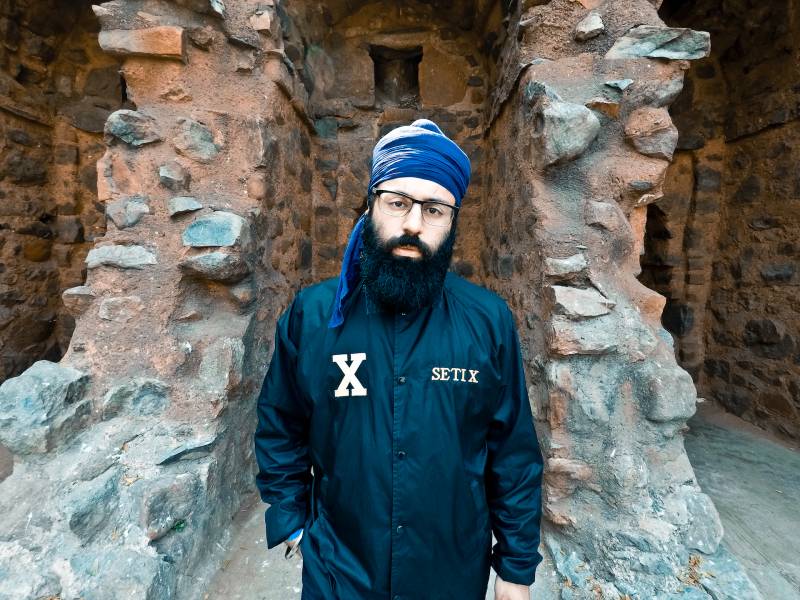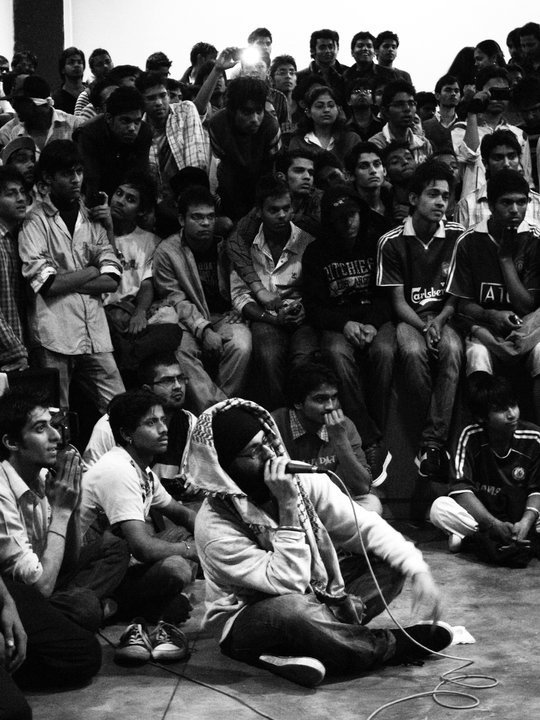W
hen I connect with rapper SETI X on Zoom, he’s proudly wearing his Punjabi turban and he hasn’t removed his educator’s background after teaching his audio production class at the June Jordan School for Equity in San Francisco. From the jump, he’s unlike any Bay Area rapper I’ve met.
It’s not just his appearance or his day job as a full-time public school educator that sets him apart from most U.S. lyricists of his generation. It’s his ideologies, his spiritual zeal and his commitment to universal human progress—informed by his upbringing in Los Angeles and from visiting his parent’s homeland in India. It’s a perspective that resonates deeply with me, as the progeny of immigrants myself, but also with his students and fans worldwide, no matter their origin or credence.
“My sound is a direct connection to the extraterrestrial universe,” the artist, real name Mandeep Sethi, says. “It pushes me far away from the materialistic world that’s governed by institutions and patriarchal systems, and brings me closer to the human child that lives within planetary people, and helps me connect with anyone, any place, any time.”
Those aren’t the typical bars you’d hear in a cypher. But SETI X is no typical emcee. For starters, he reps his Southern Californian South Asian Sikh credentials heavy on wax. He’s also shared stages with hip-hop legends like Mos Def, Talib Kweli, Lateef the Truthspeaker and Wu Tang’s RZA throughout his career—dropping multiple albums dating back to 2009. Now, having established himself in the rap game, he hopes to provide similar pathways for underserved and underrepresented youth in San Francisco.
In 2021, Sethi’s work reached an apex when he received the Save the Music Foundation’s most prestigious award: a J Dilla Music Technology Grant. The program launched in 2019 with the support of MTV, Pharrell Williams and Arizona State University, and aims to “fund electronic music creation, recording and production training for public high school students” throughout a 10-year period of financial and professional support. It’s a big deal for students in the San Francisco Unified School District, where no such program with extensive resources currently exists, especially for the city’s most civically neglected neighborhoods on the south side of downtown’s skyscrapers.



